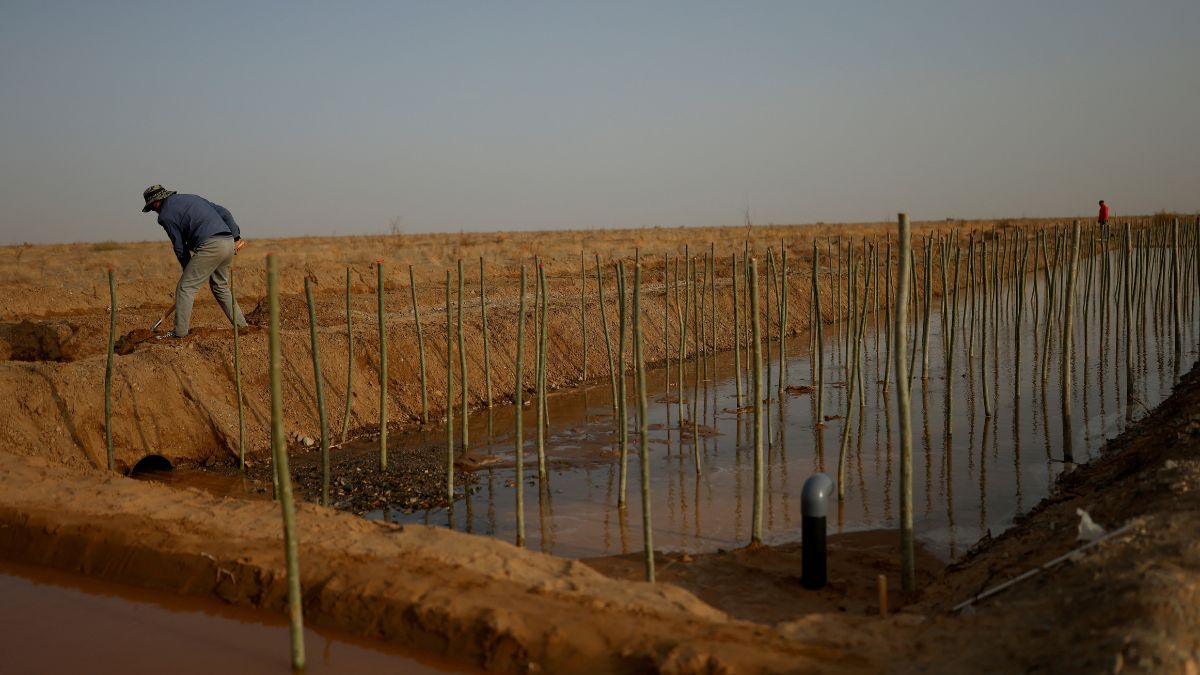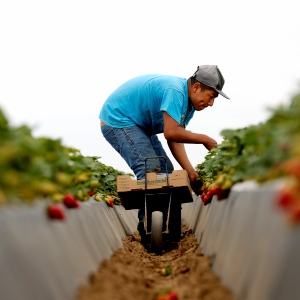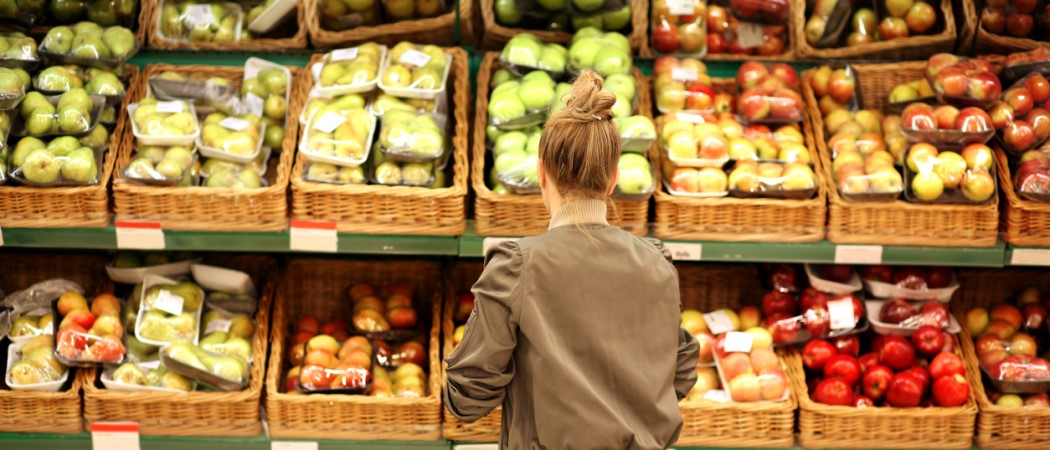

)






The ongoing Israel-Palestine war has raised concerns about its impact on various aspects of the global economy, including the Indian economy, food security, global supply chains, climate finance, and energy transition [fe97591f]. Finance Minister Nirmala Sitharaman has highlighted the concerns over fuel-related issues impacting food security, inflation, and potential fragmentation of supply chains [fe97591f]. The conflict has injected uncertainty into the global economy, affecting financial markets and the deceleration of the global economic recovery [fe97591f]. Additionally, the conflict has added unpredictability to the already tense energy markets [fe97591f]. Amidst these concerns, the Indian rupee's valuation has surged due to the Reserve Bank of India's intervention and elevated domestic inflation [fe97591f].
Food supply security is critical for ensuring access to a variety of food all year round. Supply chains and frozen foods have allowed us to have access to a wide range of produce, but extreme weather events and global shocks can disrupt these supply chains [9744e951]. Inflation has also highlighted the importance of eating locally and supporting local farmers [9744e951]. British Columbia, for example, has protected a significant amount of farmland and has the potential for a robust local agricultural industry [9744e951]. However, a plan is needed to ensure both security and variety on our plates, while also benefiting from international trade [9744e951].
A recent report by Deloitte emphasizes the potential of a global sustainable food system to lift 300 million people out of undernourishment. The report, released during COP29 on November 18, 2024, outlines that climate action could yield $121 trillion in economic growth by 2070, while inaction could cost $190 trillion due to agricultural decline [f6e35b70]. Currently, 730 million people are undernourished, and sustainable transformation could meet the nutritional needs of 1.6 billion people by 2070. The report also suggests that food prices could drop by 16% and emissions from food systems could fall by two-thirds, with lower-income countries potentially seeing a 12% boost in GDP [f6e35b70].
The ration distribution scam in Jukti Tokko has affected the food security of poor people. Nandini Bhattacharya discusses the violation of people's fundamental right to food due to corruption in the ration system [2fa2c41d].
A recent study involving 58 top UK food experts predicts that the UK might face food-related civil unrest within 50 years. The experts believe that problems in food distribution and a lack of food to sustain the population might be the core issues. Climate change, including extreme weather events like floods, droughts, and storms, is predicted to be the primary disruptor of the UK's food supply. The article emphasizes the need to ensure food availability and affordability, as well as building trust between the public, government, and food suppliers. It also provides a list of actions individuals can take to contribute to a sustainable and healthy world [b932f75c].
The article 'What does food tell us about the economy?' explores the relationship between food and the economy, highlighting the importance of food in household budgets and overall well-being [c62d19e2]. It discusses how the nutritional quality of food, its origin, and its cost impact human health and the health of the planet. The article also examines the narrowing of acceptable economic thinking and the dominance of neoclassical economics. It discusses the issue of food poverty in Britain and the challenges of controlling food inflation, which is influenced by international supply chain disruptions. The article emphasizes the need for small-scale agricultural systems and a reconnection with a good diet to address food-related challenges. It also includes discussions on monetary policy, fiscal challenges, and the future of food in the UK, with a focus on sustainable and locally-sourced agriculture. The panelists express different perspectives on cheap food, affordability, and the role of international trade in alleviating food scarcity. Overall, the article highlights the complexity of the relationship between food, health, affordability, and the economy [c62d19e2].
The article 'Make bread, not war: The survival of humanity depends upon it' argues that the survival of humanity depends on shifting focus from a war economy to an agricultural economy. It highlights the negative consequences of a war economy, such as trauma, hunger, and destruction. The author suggests that the United States should prioritize agriculture and become known as a nation committed to ending world hunger. This would involve reducing military presence, discontinuing military aid to Israel, and building non-adversarial relationships with Russia and Ukraine. The article suggests that the United States has the agricultural means to lead nations into a world of food justice and peace [9b6dec1a].
Food security is a significant challenge as the global population increases. The United Nations predicts the population will reach 9.71 billion by 2050. Food security means all individuals have access to sufficient food for a healthy life. In the US, slightly over 10% of households were food insecure in 2021. Globally, over 800 million people go to bed hungry every night. Agriculture and food security are closely linked, as many smallholder farmers depend on agriculture for their livelihoods. Strengthening the agricultural industry can combat food security, as it is twice as effective at reducing poverty as growth in other sectors. Poverty rates are higher in rural areas compared to urban areas in the US and Canada. To address food security, individuals in both rural and urban communities can support efforts to strengthen the agricultural sector.
China, a country with nearly 20 percent of the global population but less than 10 percent of the world's arable land, faces key challenges in ensuring food security [66e65f46]. These challenges include inefficient agricultural practices, supply chain bottlenecks, changing consumption habits, international trade dynamics, domestic environmental degradation, corruption and data misrepresentation, and a history of food safety scandals [66e65f46]. In response, President Xi Jinping has emphasized agricultural self-sufficiency and diversified sourcing of critical inputs, foodstuffs, technology, and know-how [66e65f46]. China has implemented various strategies to address these challenges, including farmland restoration, water-saving technologies, investment in research and development, and efforts to reduce food waste [66e65f46]. However, achieving absolute self-sufficiency in food security is unlikely, and China will continue to depend on imports to meet the demands of its population [66e65f46]. China's pursuit of food security is not only a matter of national priority but also has global implications, as it is seen as a matter of national security and the legitimacy of the Chinese Communist Party [66e65f46].
China has recently enacted its first food security law, aimed at achieving 'absolute self-sufficiency' in staple grains [0785dd26]. The law provides a legal framework for local governments and the agricultural industry to raise food production. It includes measures to protect farmland, germplasm resources, and prevent wastage. The law holds central and provincial governments accountable for incorporating food security into their plans. China aims to implement a national food security strategy that prioritizes domestic production and imports moderately. The law also stipulates the formation of a national grain emergency plan and a food security monitoring system. Violators may face fines. Analysts believe the law may not have a significant impact on food production as it enshrines existing practices.
In Hong Kong, a recent survey conducted by Food Grace revealed alarming statistics about food insufficiency among underprivileged residents. Over 40% of respondents reported going hungry to save money, while 77% prioritized price over nutrition when shopping for food. The survey, which included 509 residents and was conducted in July 2024, highlighted that 44% of participants went hungry, and 33% reduced their meals [680c4028]. The results were shared on August 13, 2024, and emphasized the need for systemic change rather than mere handouts. Notably, 46% of respondents expressed a desire for government assistance in accessing nutritious food. The editorial also stressed the importance of tackling food waste and improving food assistance programs, echoing former UN FAO director Jacques Diouf's view of hunger as a justice issue [680c4028].